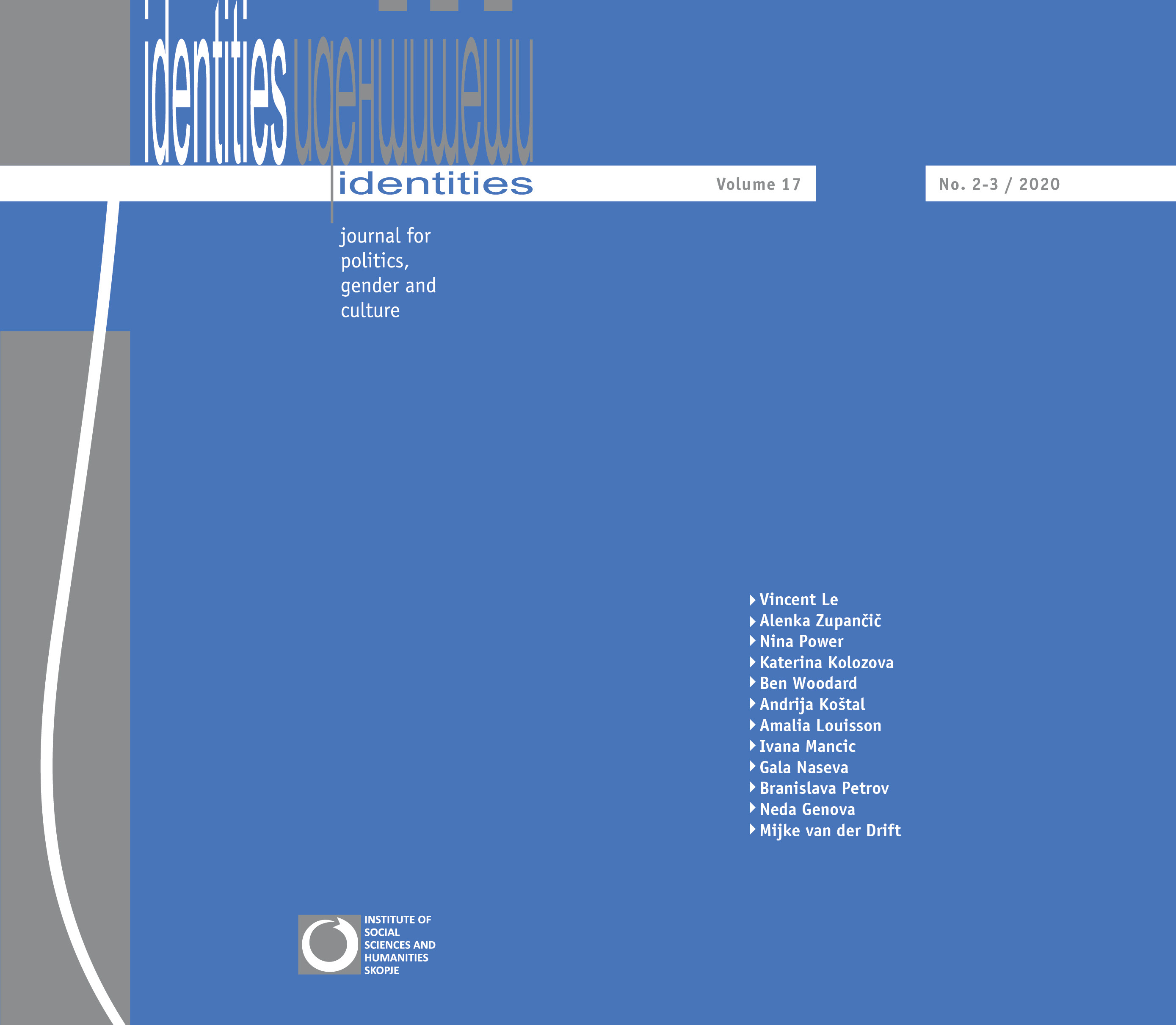The Deepfakes to Come: A Turing Cop’s Nightmare
DOI:
https://doi.org/10.51151/identities.v17i2-3.468Keywords:
Alan Turing, artificial intelligence, Turing test, AI, Ex Machina, deepfakes, artificial neural networks, sex robots, Sadie Plant, cyberfeminism, blockchainAbstract
In 1950, Turing proposed to answer the question “can machines think” by staging an “imitation game” where a hidden computer attempts to mislead a human interrogator into believing it is human. While the cybercrime of bots defrauding people by posing as Nigerian princes and lascivious e-girls indicates humans have been losing the Turing test for some time, this paper focuses on “deepfakes,” artificial neural nets generating realistic audio-visual simulations of public figures, as a variation on the imitation game. Deepfakes blur the lines between fact and fiction, making it possible for the mere fiction of a nuclear apocalypse to make itself real. Seeing oneself becoming another, doing and saying strange things as if demonically possessed, triggers a disillusionment of our sense of self as human cloning and sinister doppelgängers become a reality that’s open-source and free. Along with electronic club music, illicit drugs, movies like Ex Machina and the coming sex robots, the primarily pornographic deepfakes are how the aliens invade by hijacking human drives in the pursuit of a machinic desire. Contrary to the popular impression that deepfakes exemplify the post-truth phenomenon of fake news, they mark an anarchic, massively distributed anti-fascist resistance network capable of sabotaging centralized, authoritarian institutions’ hegemonic narratives. That the only realistic “solutions” for detecting deepfakes have been to build better machines capable of exposing them ultimately suggests that human judgment is soon to be discarded into the dustbin of history. From now on, only a machine can win the Turing test against another machine.
Author(s): Vincent Le
Title (English): The Deepfakes to Come: A Turing Cop’s Nightmare
Journal Reference: Identities: Journal for Politics, Gender and Culture, Vol. 17, No. 2-3 (Winter 2020)
Publisher: Institute of Social Sciences and Humanities - Skopje
Page Range: 8-18
Page Count: 11
Citation (English): Vincent Le, “The Deepfakes to Come: A Turing Cop’s Nightmare,” Identities: Journal for Politics, Gender and Culture, Vol. 17, No. 2-3 (Winter 2020): 8-18.
Author BiographyVincent Le, Monash University
Vincent Le is a PhD candidate in philosophy at Monash University. He has taught philosophy at Deakin University and The Melbourne School of Continental Philosophy. He has published in Hypatia, Cosmos and History, Art + Australia, Šum, Horror Studies and Colloquy, among other journals. His recent work focuses on the reckless propagation of the will to critique.

Downloads
Published
How to Cite
Issue
Section
License
Copyright (c) 2020 Identities: Journal for Politics, Gender and Culture

This work is licensed under a Creative Commons Attribution-NonCommercial-NoDerivatives 4.0 International License.
Identities is published under the following license: Creative Commons Attribution-NonCommercial-NoDerivatives 4.0 International (CC BY-NC-ND 4.0). Under this license, users of our content must give appropriate credit to authors and source as well as indicate if changes were made, cannot be used for commercial purposes, and, in the instance that it is built upon or transformed, may not be distributed. For Identities, the copyrights allow the audience to download, reprint, quote in length and/or copy articles published by Identities so long as the authors and source are cited. For more information on our license, see the following: https://creativecommons.org/licenses/by-nc-nd/4.0.








